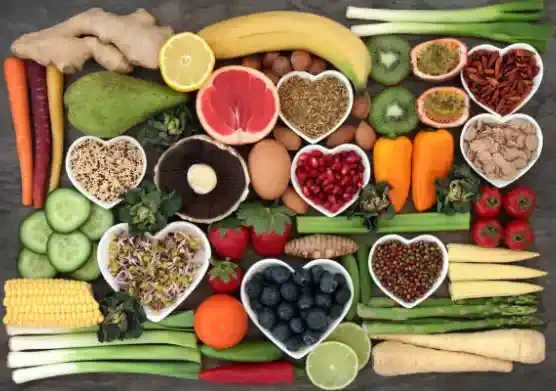Minerals are essential nutrients that play a crucial role in maintaining the overall health and functioning of the human body. They are found in the earth and a variety of foods, and are necessary for various bodily functions, including heart and brain function, hormone production, enzyme activity, and the formation of strong teeth and bones. While a healthy balanced diet should provide most of the necessary vitamins and minerals, there are instances where supplementation may be required. This article explores the different types of minerals, their sources, and the importance of incorporating mineral-rich foods into our diet.
Understanding Minerals
Minerals are classified into two categories based on the amount needed by the body: macrominerals and trace minerals. Macrominerals are required in larger quantities and include calcium, potassium, sodium, chloride, phosphorus, and magnesium. On the other hand, trace minerals, including iron, copper, fluoride, selenium, zinc, chromium, molybdenum, iodine, and manganese, are needed in smaller amounts but are equally important for optimal health.
The Role of Minerals in the Body
Minerals have various roles in the human body. They contribute to the formation and maintenance of strong teeth and bones, aid in the regulation of body fluids, and are involved in energy production from the food we consume. Additionally, minerals are essential for the proper functioning of enzymes and hormones, which are responsible for important physiological processes.
Mineral-Rich Foods
Incorporating mineral-rich foods into our diet is a great way to ensure we obtain an adequate supply of essential minerals. These foods contain a wide range of minerals and can help support overall health and well-being. Here are 16 foods that are particularly rich in minerals:
1. Nuts and Seeds
Nuts and seeds are packed with a variety of minerals, including magnesium, zinc, manganese, copper, selenium, and phosphorus. These minerals are essential for various bodily functions, such as bone health, enzyme activity, and immune function. Brazil nuts, for example, are an excellent source of selenium, providing 174% of the daily recommended intake in just one nut. Pumpkin seeds are rich in magnesium, with a 1/4-cup serving delivering 40% of the daily requirement.
2. Shellfish
Shellfish, such as oysters, clams, and mussels, are concentrated sources of minerals, including selenium, zinc, copper, and iron. These minerals are vital for immune function, DNA production, and cellular division. Consuming shellfish can help meet the daily requirements for these important minerals. For instance, 6 medium-sized oysters provide sufficient zinc and copper and supply 30% and 22% of the daily recommended intake of selenium and iron, respectively.
3. Cruciferous Vegetables
Cruciferous vegetables, like cauliflower, broccoli, Brussels sprouts, and kale, are not only rich in fiber and vitamins but also contain important minerals. These vegetables are particularly abundant in sulfur, which is necessary for cellular function, detoxification, and the synthesis of glutathione, a powerful antioxidant. Additionally, cruciferous vegetables provide essential minerals such as magnesium, potassium, manganese, and calcium.
4. Organ Meats
Organ meats may not be as popular as other protein sources, but they are incredibly rich in minerals. Beef liver, for example, is packed with copper, selenium, zinc, iron, and phosphorus. It is also high in vitamins such as B12 and A. Incorporating organ meats into our diet can be an excellent way to obtain essential minerals and other vital nutrients.
5. Eggs
Eggs are often referred to as "nature's multivitamin" due to their nutritional profile. They are rich in essential minerals such as iron, phosphorus, zinc, and selenium. Additionally, eggs provide various vitamins, healthy fats, antioxidants, and proteins. It is important to consume the whole egg, as most of the beneficial compounds are found in the yolk.
6. Beans
Beans are known for their high fiber and protein content, but they are also excellent sources of minerals such as calcium, magnesium, iron, phosphorus, potassium, manganese, copper, and zinc. Soaking and cooking beans properly can help increase the bioavailability of these minerals.
7. Cocoa
Cocoa products, including dark chocolate and cocoa powder, are surprisingly rich in minerals. Cocoa is particularly abundant in magnesium and copper. Magnesium plays a crucial role in energy production, blood pressure regulation, and nerve function, while copper is essential for growth and development, iron absorption, and red blood cell formation.
8. Avocados
Avocados are creamy fruits that are not only packed with healthy fats and fiber but also contain essential minerals such as magnesium, potassium, manganese, and copper. Potassium, in particular, is crucial for blood pressure regulation and heart health.
9. Berries
Berries, such as strawberries, blueberries, blackberries, and raspberries, are not only delicious but also rich in important minerals. They are a good source of potassium, magnesium, and manganese. These minerals play vital roles in energy metabolism, immune function, and antioxidant defense.
10. Yogurt and Cheese
Dairy products like yogurt and cheese are well-known for their calcium content. Calcium is essential for maintaining healthy bones, teeth, and muscles. Yogurt and cheese also provide other minerals like potassium, phosphorus, zinc, and selenium.
These are just a few examples of mineral-rich foods that can be incorporated into a healthy diet. By including a variety of these foods in your meals, you can ensure you are getting an adequate intake of essential minerals.
Conclusion
Minerals are crucial for maintaining optimal health and well-being. Consuming a diverse range of mineral-rich foods can help ensure you meet your body's requirements for these essential nutrients. From nuts and seeds to shellfish and vegetables, there are numerous options to choose from. By making conscious choices to include these foods in your diet, you can support your overall health and enjoy the benefits that minerals offer. Remember, a healthy balanced diet is key to providing your body with the minerals it needs to function at its best.

